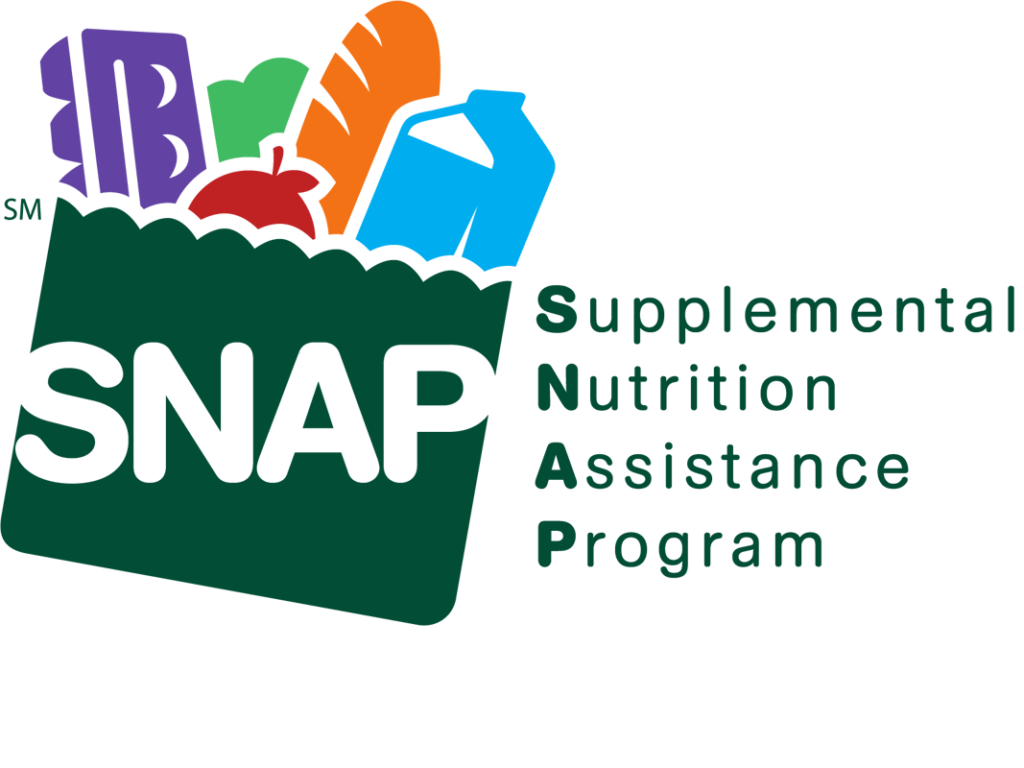Accessing Food Resources: SNAP, WIC, and Beyond
SNAP

The Supplemental Nutrition Assistance Program (SNAP) helps low-income households purchase food. Families and individuals can receive a monthly benefit to buy healthy food. They can double their benefits value by shopping at participating vendors that support the Double Up Food Bucks program.
How does SNAP Work?
The Supplemental Nutrition Assistance Program (SNAP) provides eligible low-income individuals and families with monthly benefits to purchase food. Recipients receive an Electronic Benefits Transfer (EBT) card, which works like a debit card and can be used at authorized grocery stores and farmers’ markets to buy eligible food items, helping ensure access to nutritious meals.
Each county’s human services department is responsible for determining eligibility and authorizing SNAP benefits.
SNAP eligibility is based on income, resources and household size. Benefits are provided through an Electronic Benefit Transfer (EBT) card. These can be used like a debit card at participating food stores.
Wondering if You Qualify for SNAP Assistance?
Visit Colorado SNAP Benefits to see if you qualify for nutritional assistance. Learn how this program can help you access healthy food and support your family’s well-being.
What is Able-Bodied Adults Without Dependents (ABAWD’s)?
With the June 2023 passage of the Fiscal Responsibility Act, the federal government adjusted work requirements for Supplemental Nutrition Assistance Program (SNAP) recipients classified as Able-Bodied Adults Without Dependents (ABAWDs). As of Oct. 1, 2023, the age range for ABAWDs has expanded to include individuals aged 18 to 54, who are now subject to stricter work requirements and time limits.
Tackling Campus Hunger: Your Essential Checklist
Explore Hunger Free Colorado’s SNAP for College Students initiative, which provides guidance and resources to help eligible students access SNAP benefits. This program aims to reduce food insecurity and support students’ academic success.
Explore Colorado for Less with SNAP Discounts
As a SNAP recipient, you can receive discounts on admission at many museums and cultural centers throughout Colorado. Just show your EBT card when you buy tickets at participating locations. View a list of participating locations.
Museums for All: Accessible Cultural Experiences
Discover Museums for All, an initiative that offers affordable admission to participating museums for EBT cardholders. Enjoy enriching cultural experiences without financial barriers and explore museums nationwide.
WIC
WIC, or the Special Supplemental Nutrition Program for Women, Infants, and Children, is a federal assistance program that provides nutritional support to low-income pregnant, postpartum, and breastfeeding women, as well as infants and children up to age five who are at nutritional risk. The program offers benefits including healthy food, nutrition education, and access to healthcare services to promote overall well-being and development.
Is Your Family Eligible for WIC?
Find out if you qualify for the Colorado WIC Program by visiting My Family Eligible. Discover how WIC can support your family’s nutrition and health through benefits and resources tailored for women, infants, and children.
